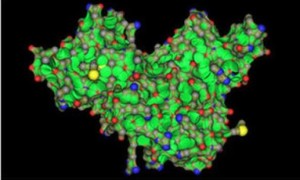The Biosimilars Working Group (BWG) of the International Pharmaceutical Regulators Forum (IPRF) announced on 6 September 2016 that it had released a draft reflection paper on the extrapolation of indications in the authorization of biosimilars.
IPRF issues draft reflection paper for biosimilars extrapolation
Home/Guidelines
|
Posted 09/09/2016
 0
Post your comment
0
Post your comment

The IPRF was created to provide an environment for pharmaceutical regulators to exchange information on issues of mutual concern and regulatory cooperation. It aims to promote harmonization among regulatory authorities and includes 11 regulatory bodies, such as the US Food and Drug Administration, the European Medicines Agency, Health Canada, Japan’s Pharmaceutical and Medical Devices Agency and Swissmedic, among others.
The group is asking that the National Regulatory Agencies (NRAs) that participate in the IPRF consider the proposed principles in the reflection paper on biosimilars extrapolation.
Reflection Paper on Extrapolation of Indications in Authorization of Biosimilar Products
Date: 25 July 2016
https://www.i-p-r-f.org/files/1614/7315/4963/160725_IPRF_BWG_Reflection_paper_final_draftver_1.3_IPRF_MC_Circulation.pdf
The draft reflection paper suggests that authorization of biosimilars be carried out using a stepwise approach. Where the reference product has more than one therapeutic indication it proposes that once comparability has been demonstrated in one indication then ‘extrapolation of clinical data to other indications of the reference product could be acceptable’.
Furthermore, ‘the IPRF BWG considers that the extrapolation of indication(s) of a biosimilar product could be accepted on the basis of the totality of the evidence generated from analytical, non-clinical and clinical comparability data’.
The IPRF BWG ‘expects that the safety and efficacy can be extrapolated when biosimilar comparability has been demonstrated by thorough physicochemical, structural and biological analysis as well as appropriate clinical data in one therapeutic indication and that the mechanism of action is the same or sufficiently similar across the extrapolated indication(s)’. According to the group, additional data should only be required ‘where residual uncertainty remains which could impact on clinically meaningful differences between the biosimilar and the reference product’.
The group points out, however, that although the majority of regulators accept the extrapolation of indication(s) on the basis of the totality-of-evidence approach, ‘there appears to be no clear consensus regarding what data should be submitted and how they should reach the conclusion to accept the extrapolation of indication(s) based on that evidence’.
The IPRF has published the proposed draft reflection paper as well as four attachments containing further information on biosimilars extrapolation in order to gain initial feedback.
The draft reflection paper and accompanying attachments have been released for a two-month consultation period. Comments should be submitted using the template for feedback on the IPRF website (www.i-p-r-f.org) via email (Secretariat.IPRF@swissmedic.ch). The deadline for comments is 5 November 2016.
Related article
IPRF template for summary information for biosimilar reviews
Permission granted to reproduce for personal and non-commercial use only. All other reproduction, copy or reprinting of all or part of any ‘Content’ found on this website is strictly prohibited without the prior consent of the publisher. Contact the publisher to obtain permission before redistributing.
Copyright – Unless otherwise stated all contents of this website are © 2016 Pro Pharma Communications International. All Rights Reserved.
Source: IPRF
Policies & Legislation
EU accepts results from FDA GMP inspections for sites outside the US
WHO to remove animal tests and establish 17 reference standards for biologicals
Most viewed articles
The best selling biotechnology drugs of 2008: the next biosimilars targets
Global biosimilars guideline development – EGA’s perspective
Related content
US guidance to remove biosimilar comparative efficacy studies
New guidance for biologicals in Pakistan and Hong Kong’s independent drug regulatory authority
Canada poised to remove requirement for Phase III trials for biosimilars
European position paper on AI in medicinal product lifecycle
New guidance for biologicals in Pakistan and Hong Kong’s independent drug regulatory authority

Home/Guidelines Posted 20/10/2025
Canada poised to remove requirement for Phase III trials for biosimilars

Home/Guidelines Posted 22/07/2025
The best selling biotechnology drugs of 2008: the next biosimilars targets








Post your comment